Fujii tatami founded in 1868 has come a long way over the years. Today, the company has extended their product lineup such as cosmetic pouches, plastic bottle cases, and mini tatami mats. The workshop is located on a side street of Shijo Station. As soon as I entered the atelier, I could smell the Igusa (Japanese cypress) and reminded me of my old memories. The walls of the workshop were covered with tatami mat edges, and there were so many kinds of colorful tatami mats that entertain foreign tourists. After seeing my surprised expression, Mr. Fujii stopped his work and called out to me. For this interview, I spoke with Yoshihisa Fujii, the sixth-generation owner of Fujii Tatami.
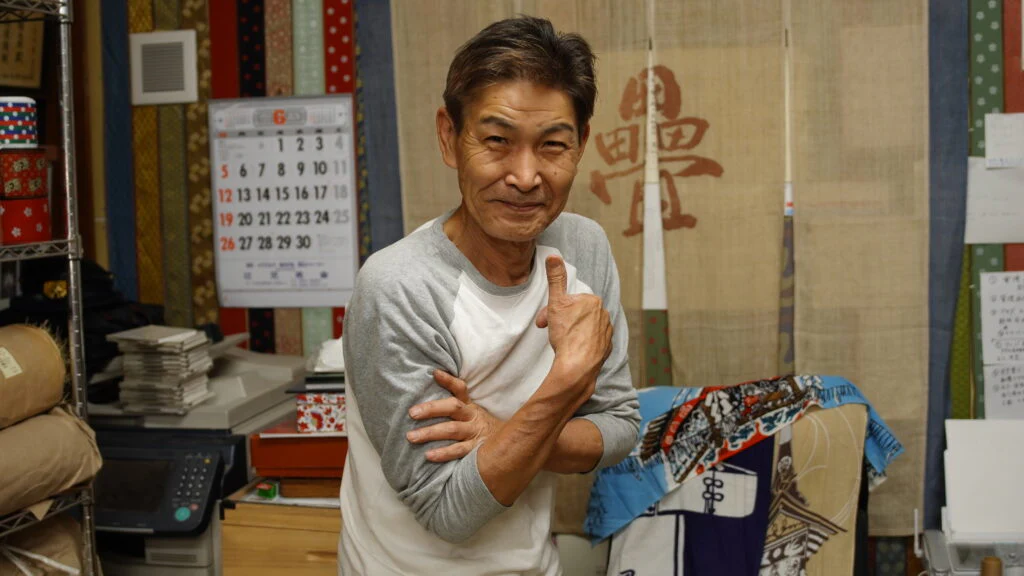
—Please tell us about your background
I was born on 12/7/1952 and now 70 years old. Fujii Tatami was founded at the beginning of the Meiji era (1868-1912) and has been in this business for 150 years as a tatami maker, and I am now the 6th generation. I was not really devoted to anything in particular, but I was playing wide range of sports, including baseball, table tennis, and the shot put. When I entered high school, I played a little bit of rugby. Only A little bit, really.
—Do you still play any sports?
I play rugby on my days off with other old guys just for fun. It’s important to be physically active to stay healthy. And, although it’s not a sport, I’ve been playing the “Gion Musical Band” for 60 years since I was 10 years old, and it’s great exercise!
―You are doing well, Mr. Fujii! Then, I guess you relieve stress by playing sports, right?
No, I don’t get too stressed at work! When I’m feeling stifled, I take a break by making time to not think about anything. Lately, I’ve been taking a break by watching YouTube. Politics, sports, history, there’s so much content on there, I never get bored! I even watch a lot of Shohei Ohtani’s (famous Japanese MLB player) plays!
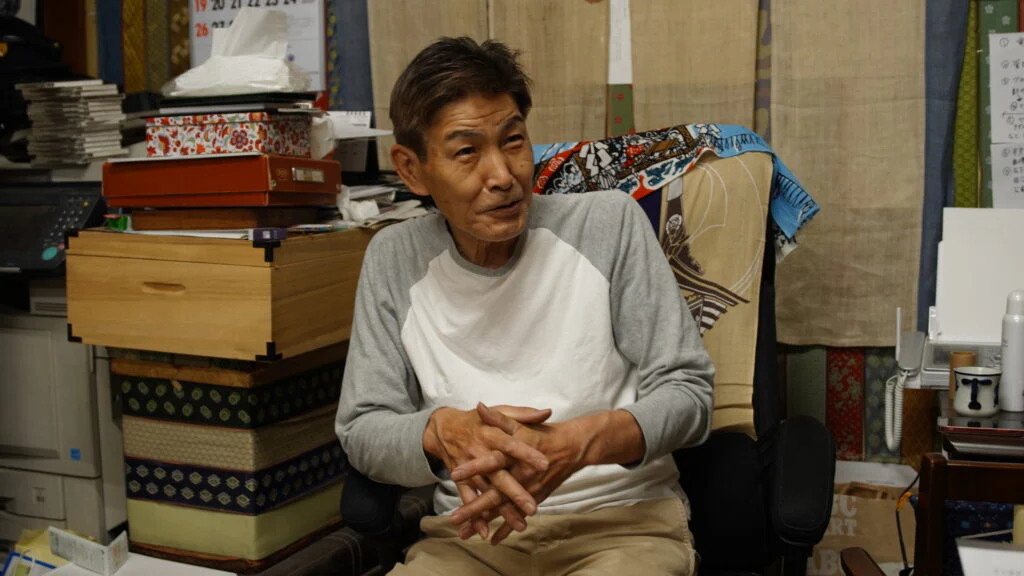
―Is there anyone you respect?
It is Mother Teresa. I think that people who can give kindness and love are great. “The opposite of love is not hate, it is indifference.” I like this phrase very much. I think that to be interested in something means to love it, and it is very good to be interested in many things.
—It’s important to have an interest in everything! Why did you decide to become a tatami craftsman?
The main reason why I became a craftsman was because I could make the time when I want. I thought that working in an office was not suitable for me, and I thought that I would be able to make time freely if I became a craftsman. Also, if I worked in a company, my time would be tied up, but this is not the case with a tatami shops. In fact, there are times when I am busy all day and other times, I can take half a day off, and one of the reasons is that I can adjust my time to some extent by myself. But I do the work that customers give me, and I work hard for it (laughs).
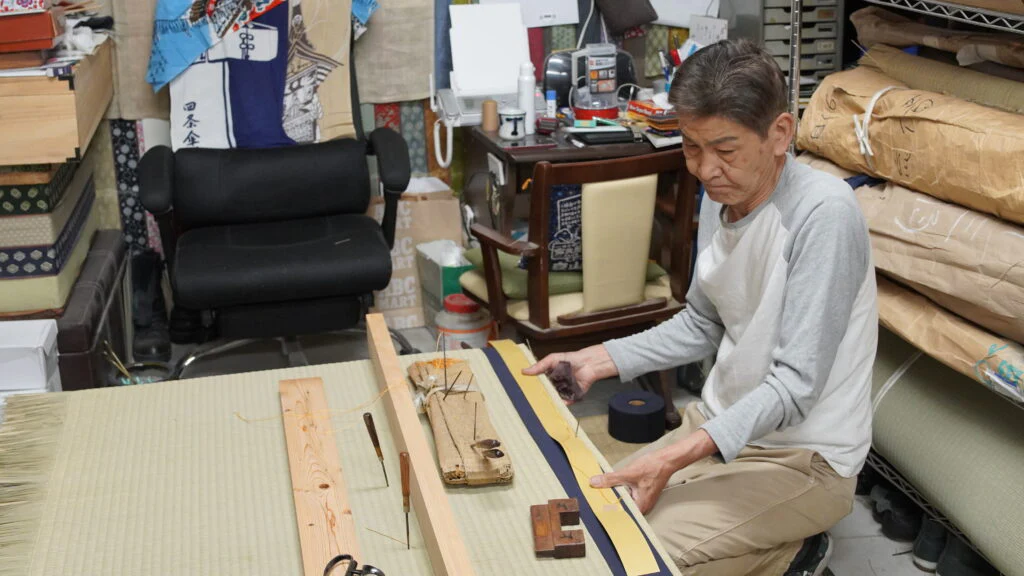
―What do you like about being a tatami craftsman?
I like to fix the damaged tatami. I feel good when I clean the damaged tatami, and I am more than happy when customers are pleased. I also like the smell of the tatami itself. I enjoy being a Tatami craftsman because I can do what I like and make my customers happy with my skills. However, I am a little sad that I cannot lift heavy tatami so easily now even though I used to be able to do it in the past.
—Do you have any particular commitment in making tatami mats?
Committing to doing my job carefully and making my customers happy. The most gratifying and rewarding moment for me is when a customer says, “Thank you for making my tatami clean.”
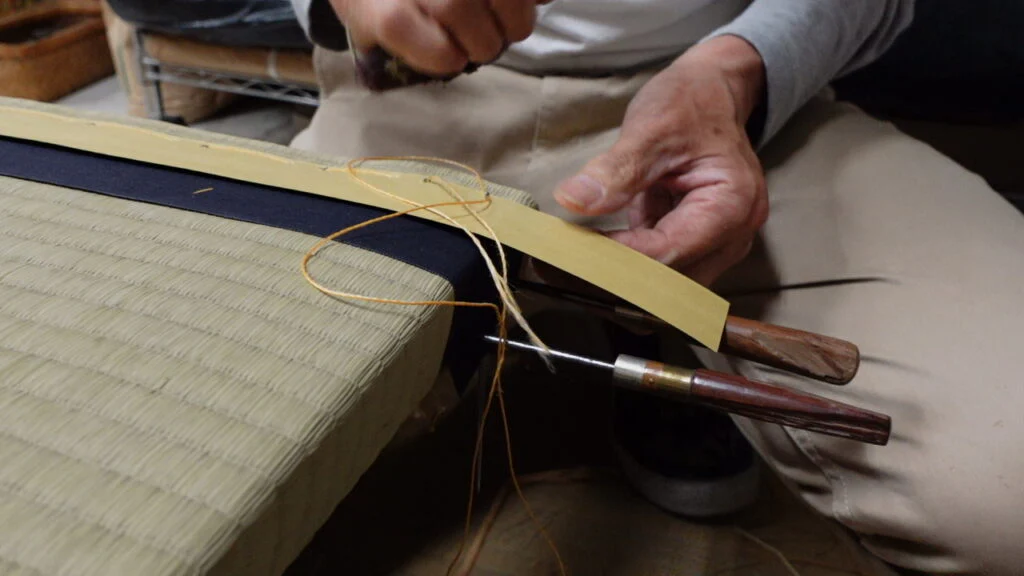
―Is the number of tatami shops decreasing year by year?
In the past, there were large number of craftsmen working in tatami shops. Nowadays, the number of shops is decreasing after the housing boom has occurred which leads to the demand for tatami itself is decreasing. Moreover, tatami shops have now started to use machines to make a traditional tatami. Due to the mechanization of tatami, tatami mat can be made by one person now. I think more than 50 handmade tatami shops closed in the past 20 years.
―I see… Are you thinking about training your successor?
If the future of tatami industry was brighter, I would have thought about that, but now I can’t really think about it. It is very difficult for ordinary tatami mat shops to make a living. About 40 million tatami mats were purchased per year 30 years ago, but now only 7-8 million are sold. In Kyoto prefecture, there are still old buildings including temples, shrines and townhouses, and you can still see tatami mats at those places. However, in the next 10 years, the number of tatami mat shops will be decreased, furthermore the price of tatami mats will go up. People who can afford it might keep using tatami mats, but many move to buy wooden flooring…. Considering these situations, I find it hard to have my own successors.
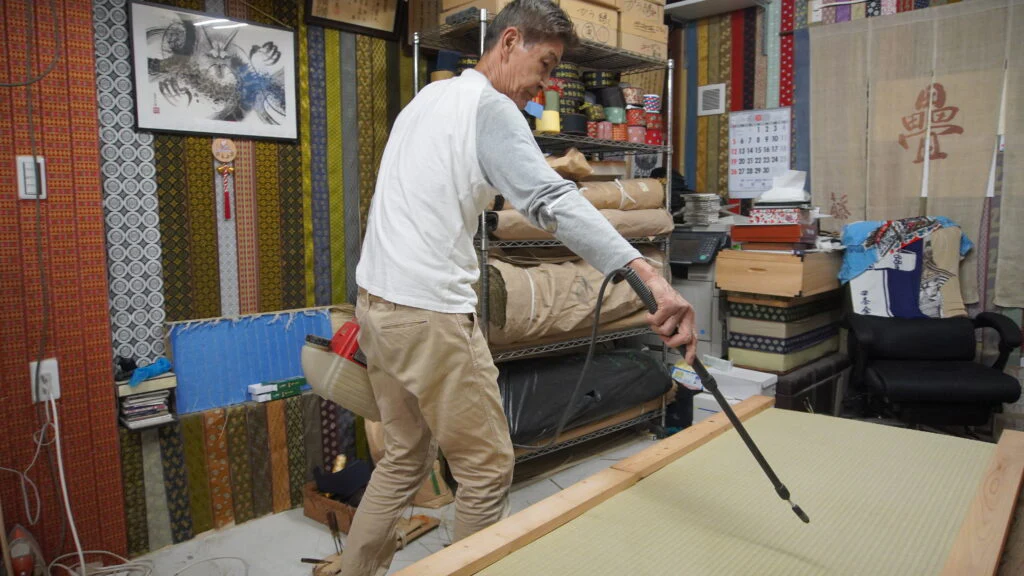
―I guess the current situation is difficult. Do you have any specific goals in this situation?
I would like to try something new with tatami mats. If I could not sell tatami mats well, I can blame it on many things. People today don’t like tatami mats, the economy is in a slump, and so on. In order to make a new tatami boom, I want to challenge something else. Now, I am trying to make mini tatami mats since I believe that large tatami mats will not be popular in the future. However, if there are people who want me to make them, I will continue to make tatami mats for them. I can’t make a living only with that business, so I am trying to do other things.
― Finally, please give us a message for people who are aspiring craftsmen.
if you have something that you want to do, you should not give up what you like. You will be able to see something by doing it until the end. Let’s go forward without fear!!!
You can watch the making process on YouTube!